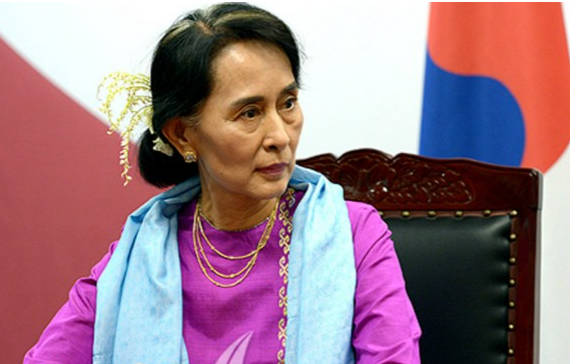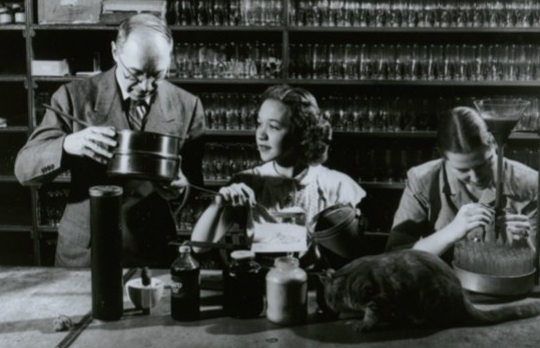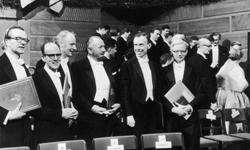(单词翻译:单击)
Our Earth teems with billions of human beings, all working, thinking, playing and plotting their way through the maze-like distractions of daily living.
世人无数,在纷杂日常中,生活方式不尽相同:或工作、或思考、或游戏或计划。
Amid the chaos, some of us remain focused and disciplined enough to forge entirely new ways of approaching life, the universe and the meaning of it all. And some of those people win Nobel Prizes.
芟繁就简,总有人高度专注自律创造生活新方式,实现生命价值。而这些人中,不乏诺贝尔奖得主。
Established in 1895 by the will of Swedish inventor and philanthropist Alfred Nobel, the prizes recognize advances in scientific and cultural fields -- literature, peace, economics, chemistry, physics and medicine.
1895年,瑞典发明家慈善家阿尔弗雷德·诺贝尔发起创立了诺贝尔奖。此奖授予在科学和文化领域对人类作出重大贡献的人,这些领域包括文学,世界和平,经济,化学,物理和医药等。
The recipients, called laureates, receive a diploma, a gold medal and a cash prize that, these days, generally exceeds $1 million.
诺贝尔奖包括金质奖章、证书和奖金,最近奖金数额均超100万美元。
All prizes must go to individuals, with the exception of the Peace Prize, which can be awarded to an organization.
除诺贝尔和平奖可颁发给机构外,其他诺贝尔奖必须颁发给个人。
Sometimes, the prizes are awarded to multiple people, but rules stipulate that each prize can be shared by no more than three.
有时,奖金可奖励给多人,但按规定不应超过三人。
First awarded in 1901, the Nobel prizes have since been given out 573 times to 900 people and organizations. Some people have received the awards more than once.
诺贝尔奖首次于1901年颁发,迄今已颁发573次,共计900人次或机构获奖,且有人多次获奖。
Typically, each prize is awarded every year, but in years where there are no exceptional accomplishments befitting a Nobel, a prize may sit idle.
诺贝尔奖通常每年颁发一次,但若有些领域成就“未达诺贝尔标准”,奖项会空置。
The prizes are, shall we say, a big deal. But more important is the work that they recognize.
诺贝尔奖可谓举足轻重。诺贝尔奖所认定的“作品”意义更大。
Laureates are the thinking person's thinkers, people who dedicate their lives to unveiling the secrets of our existence. In doing so, they help propel humankind's collective intelligence higher.
诺贝尔奖得主往往是善于思考的人,为我们的生活揭秘,推动全人类向更高层次发展。
In this article, we'll introduce you to 10 of these game-changing individuals.
本文将介绍10位改变世界的诺贝尔奖得主。
10.Aung San Suu Kyi
10.昂山素季
Let's review some of the circumstances of our first laureate. Oppressive, violent regime? Check. Indefinite political imprisonment? Check.
先来看下第一位诺奖得主的生活经历。强制政府时期,遭调查;被剥夺政治权利终身后仍遭调查。
That's just a day in the life of Aung San Suu Kyi, perhaps one of the most persistent political dissidents ever and the winner of the 1991 Peace Prize.
这就是昂山素季的日常生活。她可能是最执着的持异论者,她也是1991年的诺贝尔和平奖得主。
She wasn't allowed to leave Burma (also known as Myanmar) to receive her prize, however, until 2012, or two decades after winning.
直到2002年,即获奖20多年后,她才获得自由,得以离开缅甸接受诺奖。
In the meantime, she'd been detained by Burma's militaristic regime, which saw her work for democracy and human rights as a threat to the established power structure.
缅甸军政府认为她的作品代表着民主和人权,威胁着现有政权结构。

Aung San Suu Kyi actually won the country's general election in 1990.
昂山素季早在1990年就赢得国家普选。
But even before all of the votes were counted, she was placed under house arrest and would remain so intermittently until 2010.
但就在唱票揭晓前,她被软禁在寓所,软禁断断续续持续到2010年。
To ward off loneliness and despair, she meditated, she planned and she persisted.
为避免寂寞和绝望,她开始冥想,盘算着,坚持着。
Upon her final release from house arrest, she jumped immediately into politics again.
她最终获释后,即刻又投身政治怀抱。
The party she heads, National League for Democracy, won by a landslide in a 2015 election, although she is barred from becoming president because of her sons' foreign citizenship.
虽然她因儿子的外籍身份未能当上总统,但她领导的全国民主联盟在2015年竞选中大获全胜。
9.Hermann Muller
9.赫尔曼·马勒
For every technological advance, there are trade-offs and potential side effects.
任何科技进步都会带来商机,产生负面影响。
Thanks to the work of Hermann Muller, who won the 1946 Nobel Prize for Physiology or Medicine, people realized the importance of tempering our knowledge with safety and care.
赫尔曼·马勒是1946年诺贝尔生理学或医学奖得主,他的工作让人们意识到,安全谨慎运用所学知识的重要性。
Muller won his prize for proving that X-rays cause mutations (called X-ray mutagenesis) in the human body.
赫尔曼证明X射线能引发人体内突变,获得诺贝尔奖。

In the mid-1920s, he'd gathered significant evidence that exposing Drosophila flies to X-rays caused genetic mutations that shortened their lifespans. He was certain that the same kind of damage would occur in humans.
20世纪20年代中期,他发现暴露在X射线下的果蝇基因发生突变,寿命变短。他坚信,X射线对人体也会造成同样损害。
Although he'd been trying to publicize his work for around 20 years, it took the World-War II atomic bombings of Japan to underscore the dangers of radiation, X-rays and nuclear fallout. It was then that the Nobel committee finally recognized his research.
尽管他花了20多年时间试图发表自己的发现,但直到二战时,投到日本的原子弹才彰显我怎么觉得彰显是褒义词了辐射、X射线和核爆炸所带来的害处,诺贝尔评审才认可了他的研究。
Muller's discoveries, as well as his anti-nuclear weapons politics, made him an invaluable counterweight to the world-changing technological advances of the Atomic Age.
在原子弹时代,马勒的发现及反核武器主张,让他在科技进步领域成为改变世界的领军人物。
8.Crick, Watson and Wilkins
8.克里克,沃尔森和威尔金斯
These days, we almost take for granted the facts of DNA and its fundamental role as a building block of life as we know it.
现在,大部分人都理所当然地认为,DNA是构成人体的基本组成。
But DNA was a mystery until Francis Crick, James Watson and Maurice Wilkins began unraveling these minute, double-helix structures.
但在佛朗西斯·克里克、詹姆士·沃森和莫里斯·威尔金森解析这些微小双螺旋结构前,DNA一直是个谜。
For their work, the three won the 1962 Nobel Prize for Physiology or Medicine.
也正因此,他们三人于1962年获得诺贝尔生理学或医学奖。

In discovering the molecular structure of nucleic acids, as well as conveying its importance in relaying information throughout a living organism, the three helped blaze a trail for all sorts of new genetic advances.
他们发现核酸结构,并将它们置入其他生物体,证明其重要性,他们三人为遗传进展开启了一扇新大门。
This prize did come with a notable asterisk. Before Crick and company made their discoveries, biophysicist Rosalind Franklin found a way to photograph DNA. Crick's group used those images as a turning point for their research.
这项奖的确引人瞩目。克里克和同伴取得这一发现前,生物物理学家罗莎林·富兰克林发现一种拍摄DNA的方法。这些图片是克里克和同伴研究的转折点。
However, her insights were overshadowed somewhat by her male counterparts', and she died before she could address the matter with the Nobel committee, which has strict rules against honoring people posthumously.
然而,她的男性伙伴让她的观点稍显逊色,在她和诺贝尔评奖委员会沟通这件事前,便去世了,而诺贝尔奖有严格规定,诺贝尔奖不得颁发给逝世的人。


